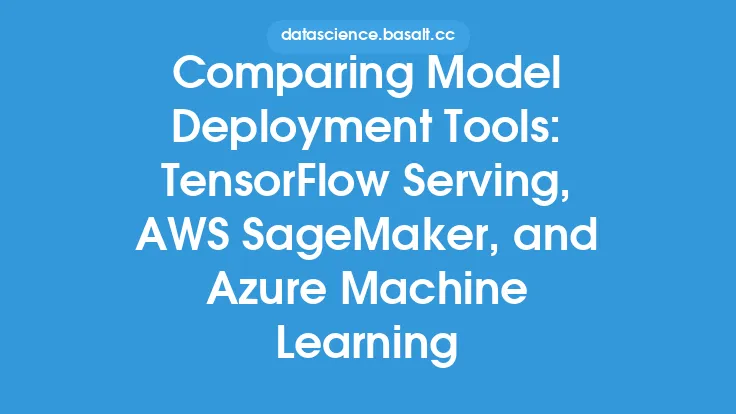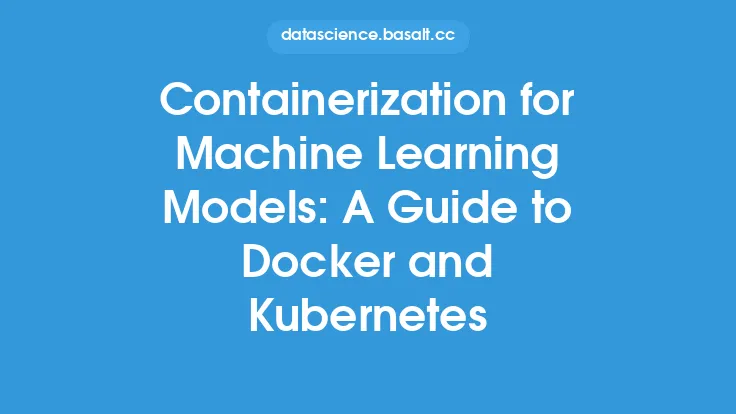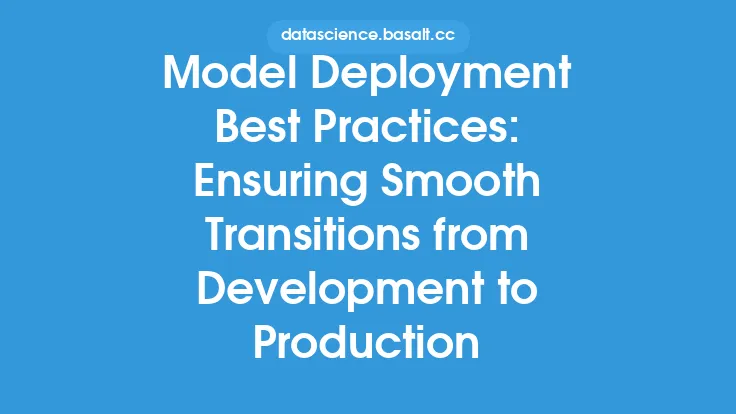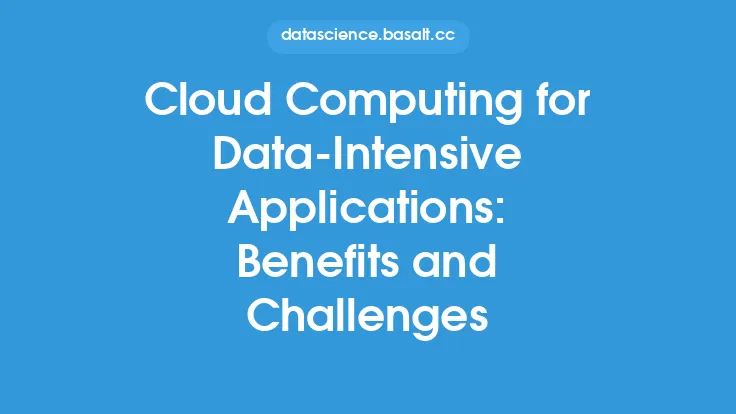Deploying machine learning models to cloud platforms is a crucial step in the machine learning lifecycle, as it enables the integration of these models into larger applications and systems, making them accessible to a wider audience. Cloud platforms such as Amazon Web Services (AWS), Microsoft Azure, and Google Cloud Platform (GCP) provide a range of services and tools that simplify the deployment process, allowing data scientists and engineers to focus on building and improving their models.
Introduction to Cloud Platforms
Cloud platforms offer a scalable and flexible infrastructure for deploying machine learning models. They provide a range of services, including computing resources, storage, and networking, which can be easily provisioned and managed. This allows data scientists and engineers to quickly deploy and test their models, without the need for expensive hardware or infrastructure investments. Additionally, cloud platforms provide a range of tools and services that support the deployment process, such as model serving, monitoring, and logging.
AWS Deployment Options
AWS provides a range of services and tools for deploying machine learning models, including Amazon SageMaker, AWS Lambda, and Amazon Elastic Container Service (ECS). Amazon SageMaker is a fully managed service that provides a range of features for building, training, and deploying machine learning models. It includes tools for data preparation, model selection, and hyperparameter tuning, as well as automated deployment and monitoring. AWS Lambda is a serverless compute service that allows developers to run code without provisioning or managing servers. It is well-suited for deploying machine learning models that require real-time predictions or processing. Amazon ECS is a container orchestration service that allows developers to deploy and manage containerized applications, including machine learning models.
Azure Deployment Options
Azure provides a range of services and tools for deploying machine learning models, including Azure Machine Learning, Azure Functions, and Azure Kubernetes Service (AKS). Azure Machine Learning is a cloud-based platform that provides a range of features for building, training, and deploying machine learning models. It includes tools for data preparation, model selection, and hyperparameter tuning, as well as automated deployment and monitoring. Azure Functions is a serverless compute service that allows developers to run code without provisioning or managing servers. It is well-suited for deploying machine learning models that require real-time predictions or processing. Azure Kubernetes Service (AKS) is a container orchestration service that allows developers to deploy and manage containerized applications, including machine learning models.
Google Cloud Deployment Options
Google Cloud provides a range of services and tools for deploying machine learning models, including Google Cloud AI Platform, Cloud Functions, and Google Kubernetes Engine (GKE). Google Cloud AI Platform is a managed platform that provides a range of features for building, training, and deploying machine learning models. It includes tools for data preparation, model selection, and hyperparameter tuning, as well as automated deployment and monitoring. Cloud Functions is a serverless compute service that allows developers to run code without provisioning or managing servers. It is well-suited for deploying machine learning models that require real-time predictions or processing. Google Kubernetes Engine (GKE) is a container orchestration service that allows developers to deploy and manage containerized applications, including machine learning models.
Model Deployment Considerations
When deploying machine learning models to cloud platforms, there are several considerations that must be taken into account. These include scalability, security, and monitoring. Scalability is critical, as machine learning models can require significant computing resources to operate effectively. Cloud platforms provide a range of services that support scalability, including auto-scaling and load balancing. Security is also critical, as machine learning models can contain sensitive data and intellectual property. Cloud platforms provide a range of services that support security, including encryption and access controls. Monitoring is also essential, as it allows developers to track the performance of their models and identify issues. Cloud platforms provide a range of services that support monitoring, including logging and metrics.
Model Serving and Inference
Model serving and inference are critical components of the deployment process. Model serving refers to the process of deploying a trained model to a production environment, where it can be used to make predictions or take actions. Inference refers to the process of using a deployed model to make predictions or take actions. Cloud platforms provide a range of services that support model serving and inference, including TensorFlow Serving, AWS SageMaker, and Azure Machine Learning. These services provide a range of features, including automated deployment, monitoring, and scaling.
Conclusion
Deploying machine learning models to cloud platforms is a complex process that requires careful consideration of several factors, including scalability, security, and monitoring. Cloud platforms such as AWS, Azure, and Google Cloud provide a range of services and tools that simplify the deployment process, allowing data scientists and engineers to focus on building and improving their models. By understanding the deployment options and considerations for each cloud platform, developers can choose the best approach for their specific use case and ensure successful deployment of their machine learning models.





